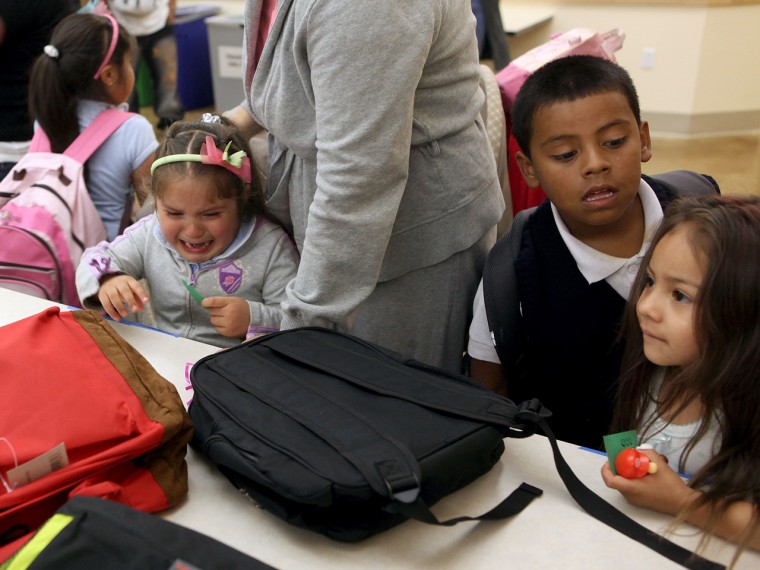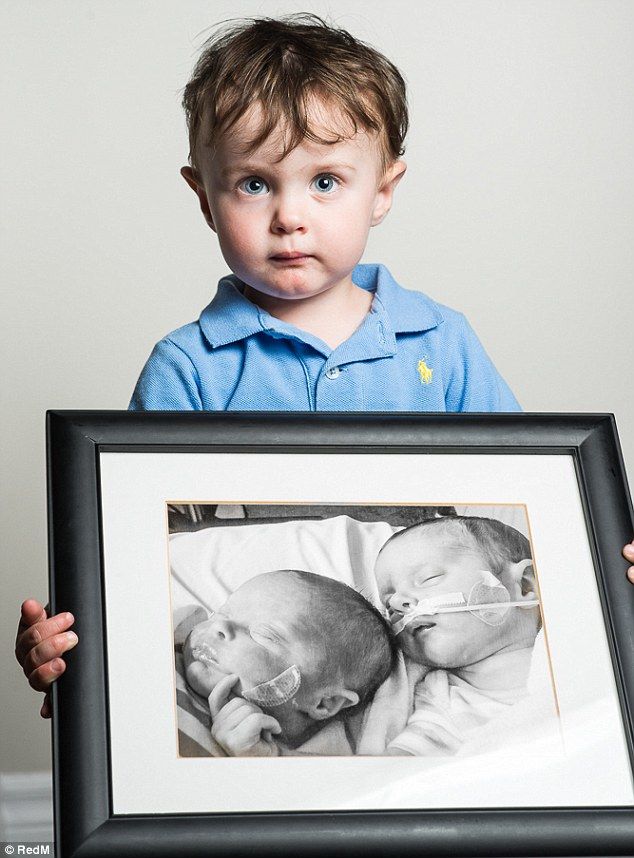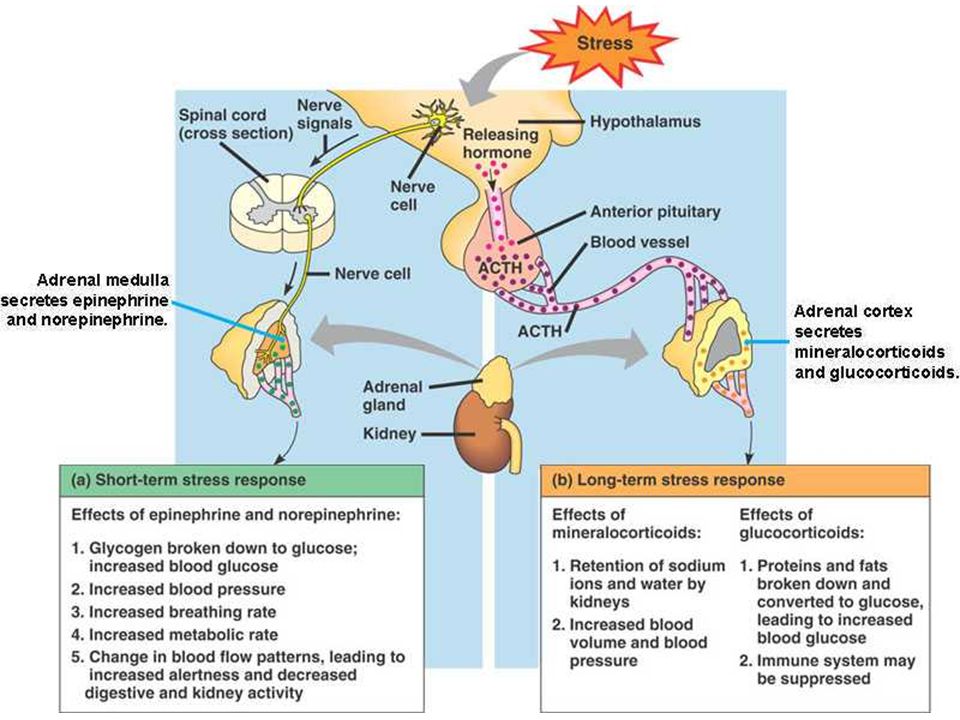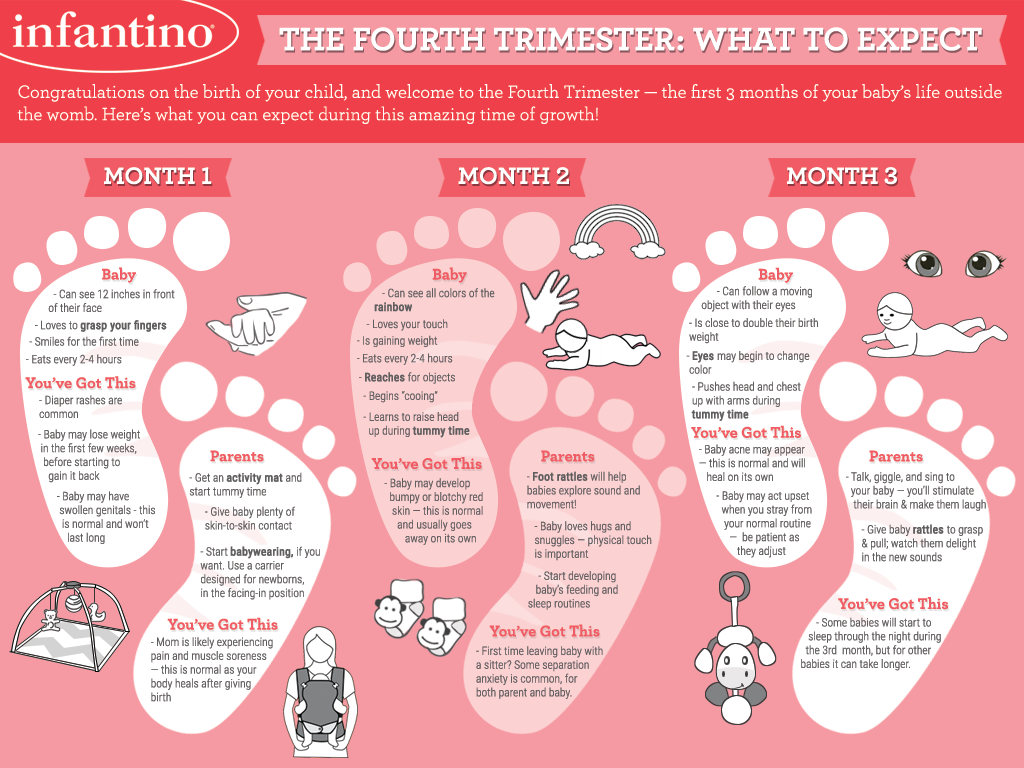How to help your child not cry at school
Child Cries at School Drop Off
Do you feel guilty or frustrated when your child cries at school drop off? Learn how to cope with separation anxiety and make mornings easier.
I couldn’t get the image out of my head: my son crying on his first day of preschool, trying to wrestle himself out of his teacher’s arms as I said goodbye.
I reminded myself that this was to be expected, that adjusting to anything takes time.
But as I stepped into my car, the mom guilt came in full force. I hated thinking about him upset, and even questioned whether preschool was the right decision.
It didn’t help that I saw only a slight improvement over the next several days. Even getting out of the house became a challenge, as he began to resist stepping out the door, knowing he’d be at school that day. I found myself feeling stressed and harried, trying to juggle his emotional needs with getting to school and work on time.
The guilt turned into impatience and frustration, especially when the crying didn’t let up any time soon.
School drop-offs officially became the hardest part of the day.
Table of Contents
When your child cries at school drop off
So, how do you deal with your child crying at school drop off?
Maybe you can relate. You also feel guilty when your child cries at school drop off, the sound of her screaming and yelling gnawing at you. Drop offs are so challenging that concentrating at work is all but impossible. Nothing you’ve tried has worked so far.
And you’re likely feeling a whole range of emotions, from guilt to anger to complete overwhelm about how to make drop offs much smoother.
Not exactly how you want to start your mornings, right?
I hear you, friend. Thankfully, after digging in on how I could help my son, I was able to apply several techniques and saw amazing results, many almost immediately.
In fact, a parent wrote after I shared these ideas:
“Thank you, Nina, for this list of ideas.
It was validating to realize I was already doing some, but enlightening to read some that I hadn’t yet considered. Anyway, all that to say- thank you for the tips and the validation!” -Jessica
No more rushing out the door because my son was so adamant about not leaving. No more clamoring out of the teacher’s arms, or tears welling up the minute he knew I was leaving. Drop offs instead became a seamless, smooth transition to our day.
Take a look at the top tips that made it happen (plus watch the video below where I explain these tips even more). As one parent said about the video:
1. Discuss your child’s emotions at home
Sometimes the most effective way to stop the tears starts later in the day: when you get home.
After pick up and when all is calm, talk with your child about her feelings that day. Use words to describe her emotions, like, “You seemed sad when I dropped you off at school this morning.”
Allow her to express feelings she might have, and bring them up often so she can better identify feelings like scared, angry, hurt and worried. Remind her that it’s okay to miss you, letting her know you miss her too and look forward to picking her up from school each day.
Remind her that it’s okay to miss you, letting her know you miss her too and look forward to picking her up from school each day.
And simply listen. Don’t follow up every sentence with a reason why she shouldn’t feel that way. Give her the space to express herself without offering a different point of view.
At the same time, discuss positive emotions she might also have had during the school day. Yes, drop off was rough, but maybe she found new activities she liked, or played a fun game in the classroom.
Discussions like these place labels on feelings she’s starting to grasp. This helps her not only understand that they’re normal, but to start using words to share how she feels. And most important, you’re able to show empathy and understanding about the depth of her frustration.
Free resource: As difficult as her behavior may be, a lot of it can be prevented simply by seeing things from her perspective. In The Power of Empathy, you’ll learn how empathy is truly the secret key that makes a huge difference in how we interact with our kids.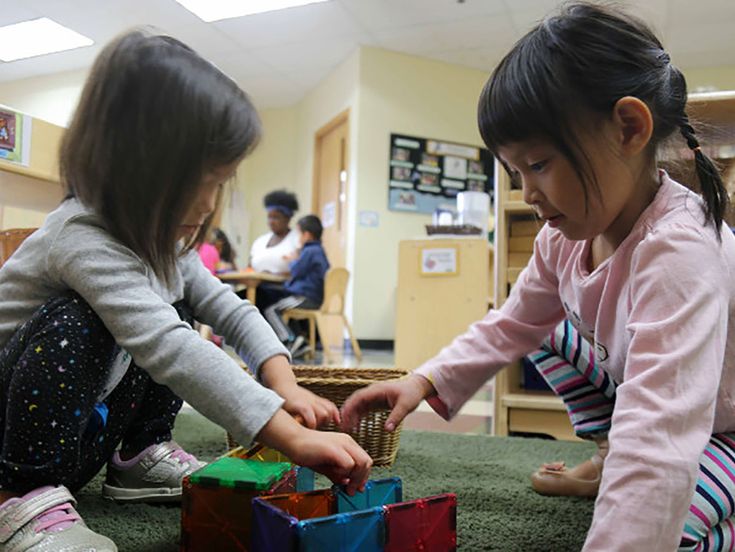
Imagine transforming these hectic drop offs, using just the lessons you’ll learn right here. Grab your PDF below—at no cost to you. You’ll also get my newsletters, which parents say they LOVE:
“Hey Nina, thank you so much for this. It’s something we all struggle with. Once again, you are always spot on and such an encouragement.” -Candice Alben
2. Talk about school in a positive way
With your child resisting school even before you leave the house, you might find yourself inadvertently talking about school in a bad way.
Don’t.
This only confirms his fears and assumptions that school is a place he shouldn’t be. What are a few common ways you might be painting school in a negative light? Avoid saying:
- Dreadful talk about school: “Yay, there’s no school tomorrow!” or “We have to get to school, no matter what!”
- Empty threats: “Don’t cry so much or I’ll take all your toys away.
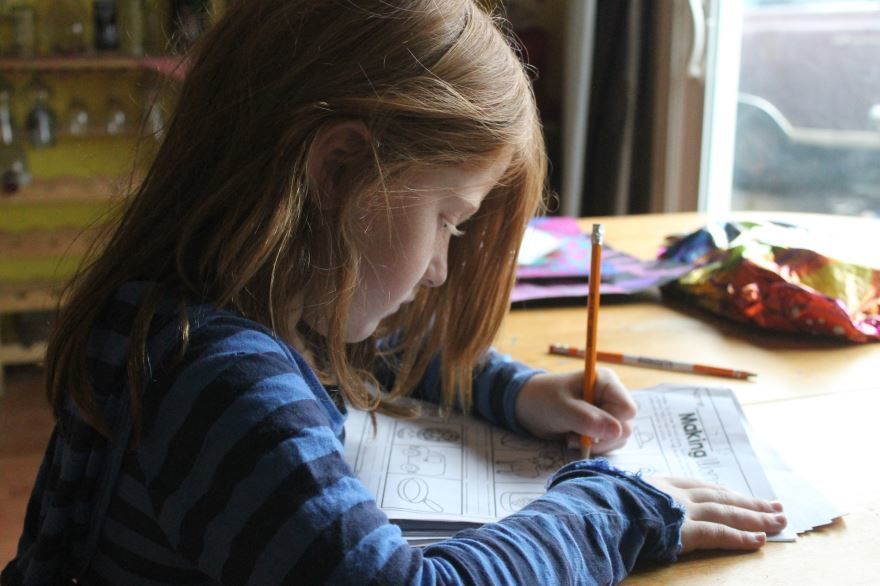 ”
” - Bribes: “If you put your shoes on, we can get ice cream tonight when I pick you up.”
In short, avoid making school an issue to argue about. Instead, keep it positive, or at least matter-of-fact.
Explain that school is something we’ve all experienced, or highlight the fun activities he gets to do there that he doesn’t anywhere else. For instance, remind him about the playground he gets to use several times a day, the many books he reads, and the songs and games he plays.
And get him to open about school by asking questions. Don’t just ask, “How was school?” Instead, ask open-ended questions, both where he relays what happens and his opinions about them.
Bonus tip: Make his experience at school even more positive with the lunches you pack! Include his favorite meals, snacks, or even special treats for lunch. You can also print a family photo and slip it into his lunch bag as a special surprise.
Learn how to get your child interested in school.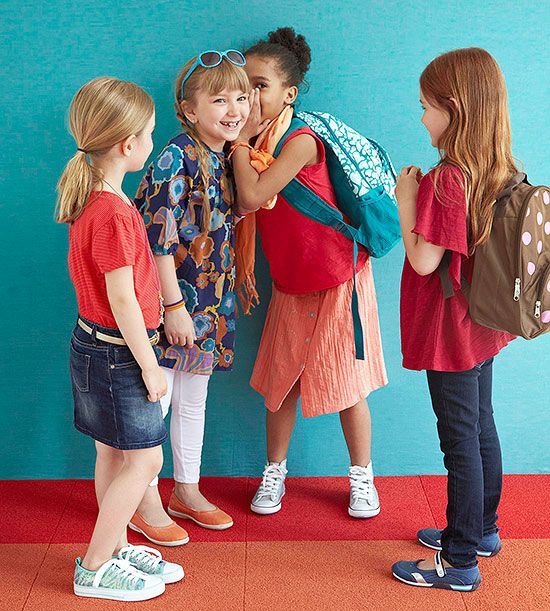
3. Give your child a special item
Disclosure: This article contains affiliate links, which means I will earn a commission—at no extra cost to you—if you make a purchase.
Making that leap into the unfamiliar is difficult for anyone, and more so with kids. One way to ease the transition is to give your child a special item she can keep during school.
Perhaps it’s her favorite bracelet, one she can fiddle with her fingers when she feels scared or nervous. Or maybe it’s her lovey or small stuffed animal, tucked safely in her backpack (this is the lovey my son used), waiting for her at the end of the day. It can even be a special note from you that she can keep in her pocket.
Having a special item, either nearby in her cubby or in her pocket, will help bring familiarity into new situations.
Bonus tip: Give her one of your items. From a hair clip to an old watch, let her have one of your items during school, with the promise of getting it back at pick up. This not only gives her a piece of you, but reassures her you’ll be reunited later.
This not only gives her a piece of you, but reassures her you’ll be reunited later.
How to help your child transition to preschool.
4. Arrive earlier than the other kids
Imagine arriving at a party and everyone is already there. This might be fine if the party included familiar friends and family, but what if you didn’t know anyone? You’d likely feel overwhelmed, nervous, and ready to go home.
The same is true for your child and drop offs.
Dropping my son off during the preschool’s busy window meant hearing the bustle of other children settling in. The teacher also had more students and parents to contend with.
But by bringing him to school even a few minutes earlier allowed him to settle in long before the chaos began. He also had his teacher’s attention before most of the children arrived, giving him a chance to feel more comfortable.
If you sense your child is overwhelmed with the morning bustle, try dropping her off a few minutes earlier.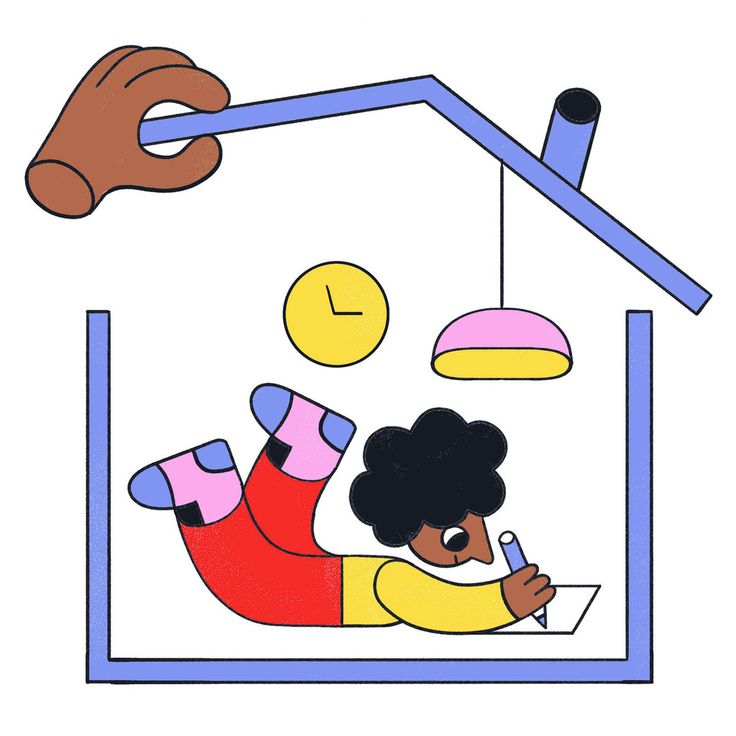 Avoid the rush of children, and instead give her a chance to settle in, chat with her teacher, and adjust before everyone else arrives.
Avoid the rush of children, and instead give her a chance to settle in, chat with her teacher, and adjust before everyone else arrives.
Bonus tip: Getting to school earlier will be much easier if you wake up earlier as well. It’s never easy trying to get to school and work on time when you’re rushing out the house. Give yourself plenty of time to accommodate an earlier drop off.
Better yet, have everything already prepared the night before to avoid last-minute rushing. Pack things like your lunches and work bags, and have clothes ready to go.
5. Guide your child to her first activity
Nothing can feel more awkward than standing in the middle of a room with no idea what to do next. But sometimes, that’s exactly what we do with our kids during drop off. And if your child is unfamiliar with the school’s schedule, she might feel extra anxious not knowing what to do.
For the first few days, guide her to an activity she can do, especially one she enjoys, like puzzles or blocks. My son seemed curious about water-pouring activities and getting his hands wet.
My son seemed curious about water-pouring activities and getting his hands wet.
By guiding her to a favorite task, you can help her focus on positive activities instead of dwelling on your impending departure.
She’s also able to get excited about her day and feel curious about what’s to come. Rather than worrying about being apart from you, she can get a head start on a fun activity right away.
Bonus tip: Ask the teachers what activity she liked best from the last few days. That way, not only can you guide her to that activity, you can already get her excited about it when leaving the house. “I bet you’ll have a lot of fun with the blocks this morning!”
6. Don’t leave without saying goodbye
Once you’ve settled your child into her first activity, leaving without saying goodbye feels tempting. After all, she seems distracted enough, maybe even enjoying her activity—why tarnish her mood by drawing more tears?
As easy as it is to dash out the door and avoid seeing her cry, don’t. Rather than focusing on the activity or settling in, she’ll look around and wonder where you went. She might spend the rest of the day anxious about where you had gone and why you didn’t say goodbye.
Rather than focusing on the activity or settling in, she’ll look around and wonder where you went. She might spend the rest of the day anxious about where you had gone and why you didn’t say goodbye.
The next morning, she’ll worry whether you’re going to leave without telling her again, and struggle even more during future drop offs. Just because she doesn’t cry, that doesn’t mean she isn’t harboring hurt, fear, and anger throughout the day.
Bonus tip: Start a fun goodbye tradition you can do with her. Maybe it’s saying the same phrase every day, waving goodbye at the window, or giving her hands a kiss. Check out The Kissing Hand by Audrey Penn, a fantastic children’s book about easing her separation anxiety:
7. Keep goodbyes pleasant and brief
What’s your first reaction when your child cries at school drop off? If I had to guess, you might have run to comfort her until she quieted down and stopped crying. Except how we say goodbye—and how long—can send the wrong message.
Comforting her works when you’re spending the day together, but drop offs are different—you can’t be together the whole day.
Lingering until she stops crying sends her mixed signals. On one hand, you tell her she’s in safe hands, but you’re also comforting her as if she’s in an unpleasant situation.
Instead, convey confidence by acknowledging her emotions while reassuring her she’ll be fine. You might say, “I know it can feel scary to be in a new place. Thankfully, your teachers will take good care of you and make sure you have lots of fun.”
No one else can comfort her better than you, but in this case, allow the teachers to assume that role.
And keep drop offs short as well. Attend to the basics, then explain it’s time for you to go. When she begins to cry, remind her she’ll be okay.
Then, here’s the important part: don’t freak out. Don’t come back for second hugs or linger by the door, waving goodbye for ten minutes. Don’t cry alongside her as if there’s no way she’ll enjoy herself without you.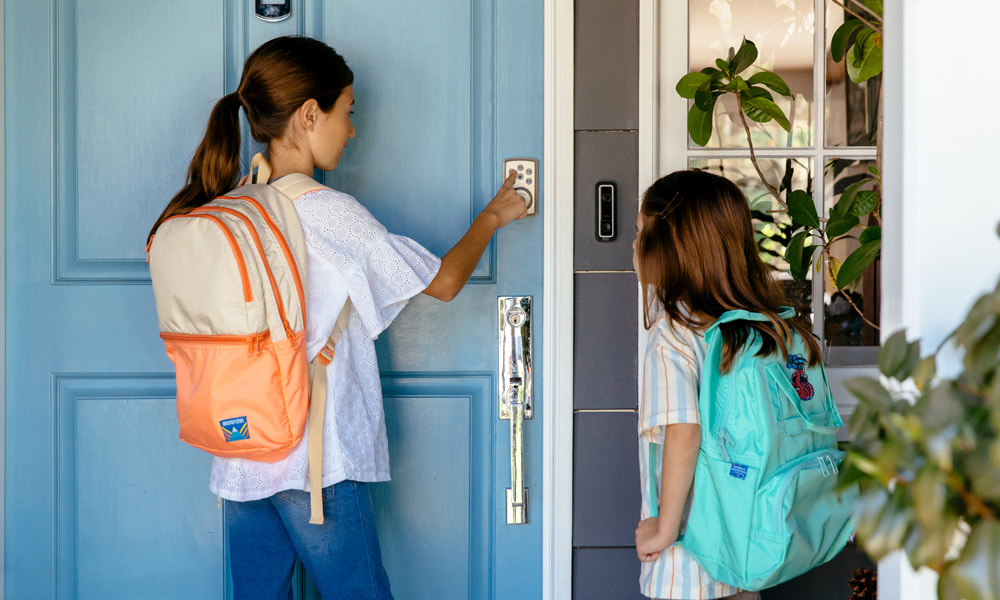
Seeing you uncomfortable makes her worry even more. She needs to know that you feel confident about her staying at school.
Bonus tip: Be conscious of your facial expressions and body language. You might tell her, “You’ll be fine!” but if your face says otherwise, she won’t feel reassured. Soften your face, give a genuine smile, and relax—she’ll understand your face and body language more than any words you say.
Learn the key to helping your child stop crying at school.
8. Ask the teachers how the rest of the day went
It’s easy to feel guilty after drop offs, especially when the last thing you saw was your child in tears.
But that last scene can be misleading. Truth is, she probably didn’t cry the entire day. In fact, she likely stopped crying a few minutes after you left (and the briefer and more pleasant your goodbye, the quicker she stops!).
At pick up time, ask the teacher how the rest of the day went and how your child coped. If you’re truly concerned, give the staff a call once you arrive at work to see how long it took before she finally calmed down, and how the rest of her day went.
If you’re truly concerned, give the staff a call once you arrive at work to see how long it took before she finally calmed down, and how the rest of her day went.
You might find that she ended up enjoying the rest of her day, or that she played well with others at circle time.
This is true not just for drop offs but when leaving kids with babysitters. My husband and I would hear our kids crying as we left for a date night, only to learn they stopped within minutes and had a blast the rest of the evening.
Bonus tip: Ask the teacher what finally helped your child calm down, and see if they can repeat it the next few days.
9. Remember that this will pass
As guilty as I felt when my kids were sad or cried during school drop offs, I reminded myself that this is normal.
We’re their parents, their world. A healthy attachment to her parents is usually the reason your child cries at school drop off. Don’t feel like you didn’t do a good job because she cried while others didn’t. Instead, revel in the strong parent-child connection you’ve built.
Instead, revel in the strong parent-child connection you’ve built.
It’ll get better. Both of you will find a rhythm to your mornings. She’ll learn to love and trust her caregivers, you’ll feel more confident about letting go, and separating also gets easier with age.
Time makes these difficult days pass. You and I have grown accustomed to every old routine—from our jobs to our homes—that at one point had felt like a difficult, new experience. The same will happen with school drop offs.
Get tips on how to deal with separation anxiety.
Conclusion
Feeling overwhelmed when your child cries at school drop off is normal, but still frustrating. Thankfully, you now have several actionable steps to take to make your morning routine stress-free.
Start by discussing her feelings and showing empathy for her struggles. Talk about school in a positive way, resisting the urge to making it sound dreadful. Give her a special item—whether hers or yours—for a sense of familiarity and a piece of home.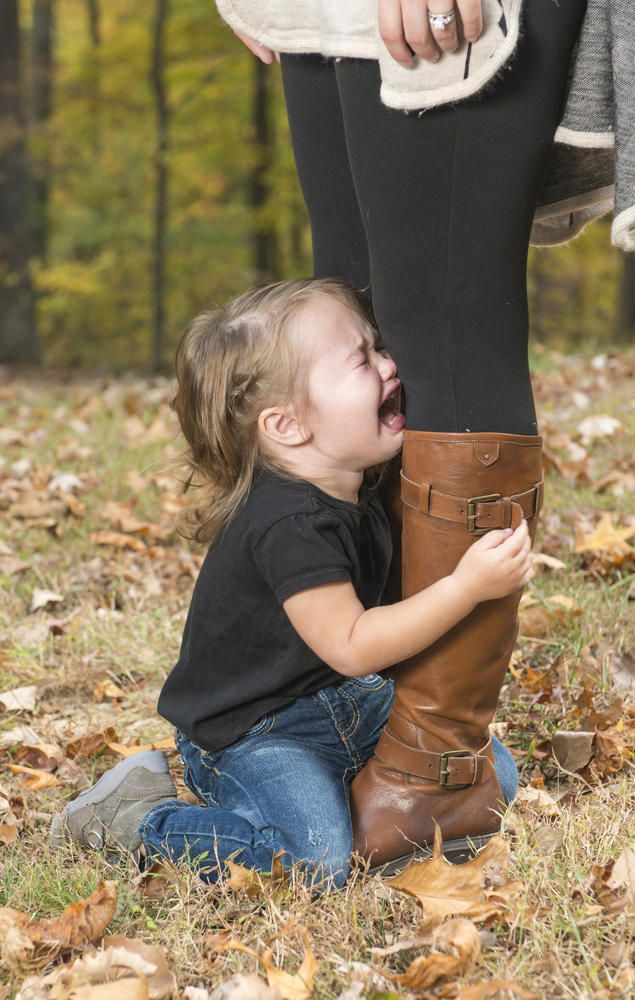
Arrive earlier than the other kids to avoid the bustle of the crowds, and guide her to her first favorite activity. Don’t leave without saying goodbye, while keeping those farewells confident and brief. Ask the teacher how the rest of the day went, and remind yourself that this is normal and will soon pass.
In time, you’ll both adjust to your new normal— no more trying to wrestle out of her teacher’s arms every morning.
Get more tips:
- How to Get Your Child Interested in School
- Helping Your Sad Child Handle Their Feelings
- How to Deal with a Child Who Cries Over Everything
- Preschool Pros and Cons: Should You Send Your Child to Preschool?
- What to Do when Your Child Doesn’t Want to Go to School
Don’t forget: Join my newsletter and grab your copy of The Power of Empathy:
How to Help Your Child Stop Crying at School
Drop off time with a child who is suddenly crying at school is heart-wrenching. Follow these simple best practices for tear-free school days.
Follow these simple best practices for tear-free school days.
“Come meet your new friends!” my son’s preschool teacher said. But he stood in place, head hung low, his eyes pointed straight to the ground.
We had just enrolled him into a new school—or school, period, because he had never gone before. And nothing was more heartbreaking than seeing him realize his new reality.
Because isn’t that just the worst feeling?
Maybe your daughter was fine the first few days of school, but now cries when you drop her off. She’s never really been with anyone but you, so every morning she cries that she doesn’t want to go to school. And while she eventually stops crying, she still cries all the way to school and especially when you leave.
Even if she’s in the same school with familiar teachers and kids, none of it matters because she’s still crying at school for random reasons.
You’ve tried consoling her, reminding her that you’ll pick her up, and you even make sure to wave at her as you walk away. Still, she continues to cry… and it’s getting worse every day.
Still, she continues to cry… and it’s getting worse every day.
You feel awful for putting her through that. You don’t want her to think you’re leaving her because you don’t want to be with her.
So, what gives? How can you help your child stop crying at school?
The key to helping your child stop crying at school
First, rest assured that your child’s behavior is common. Some kids cry, while others hop out of the car and hardly wave—both behaviors are normal. But I’ve learned that there’s one key tip we need to learn if we want our kids to stop crying at school, and it’s this:
Make your goodbyes quick and confident.
So, what does that mean?
First, don’t linger. We think that we’re helping our kids by staying a few extra minutes until they “settle in,” or caving in when they ask us for one more hug and kiss before we leave.
The problem with prolonging your goodbyes is that it sends the message that maybe your child shouldn’t be at school. That if you had it your way, she wouldn’t be here at all.
That if you had it your way, she wouldn’t be here at all.
You’re also likely anxious, worried, and not confident about school. How do you think she feels when you profusely tell her that the day will pass quickly or tear up yourself at saying goodbye? Remember, you’ll see her in a few hours—she’s not traveling to another country for a month.
So, keep drop offs short and sweet, and avoid showing the anxiety you might be feeling. You’re helping her more by leaving with full confidence in the school and in her ability to cope with her emotions.
Get tips on how to deal with separation anxiety.
Best practices to help with school drop offs
That said, I’d like to share several tips that can make school drop offs smoother for both you and your child:
- Make sure your child is well-rested and fed. Nothing makes for a crankier school day than feeling tired and hungry.
- Prepare her on your way to school.
 Describe what she can expect at school and have her imagine the day unfold. Remind her that she can ask the teacher for anything she needs help with (for instance, she shouldn’t feel bad if she needs help using scissors). And talk about the fun she’ll have, especially with activities she can’t do at home.
Describe what she can expect at school and have her imagine the day unfold. Remind her that she can ask the teacher for anything she needs help with (for instance, she shouldn’t feel bad if she needs help using scissors). And talk about the fun she’ll have, especially with activities she can’t do at home. - Bring a piece of home. Tape a picture of your family on her pencil box, or ask the teacher if she can keep a small stuffed animal in her backpack. When she feels anxious and scared, she has these familiar pieces of home to turn to.
- Talk about how she feels. Remind her that it’s okay to feel sad, but that she’s safe and loved in school. More importantly, you’ll come back to pick her up (tip: Make an extra effort to pick her up at the same time every day, so she never has a doubt that you will). Think of it as the perfect time for her to practice essential life skills like coping with emotions and being independent.

- Do something fun after school. Celebrate the first few days by doing something special that she can be excited about. Take her to the library, treat her to ice cream, or go to the park—anything to keep her mind excited while she’s in school.
Talk to your child’s teachers
Some kids struggle with anxiety and separation more than others. If you’re truly concerned, talk to your child’s teachers about your child’s behavior problems.
Ask them if his behavior is out of the ordinary, how he fares the rest of the day, and the reasons he cries during school. Enlist their help with saying goodbye, or alert them to any fears and extra comforting they should address with him.
And ask them for their advice. They’ve been doing this for years and have seen all sorts of kids come and go. They can give you tips they’ve seen work with other kids that can work with yours.
Conclusion
No parent wants to see their child upset and crying at school. We all wish our kids took to school like a champ, but rest assured that your child’s behavior is normal and doesn’t make her any worse than the next.
We all wish our kids took to school like a champ, but rest assured that your child’s behavior is normal and doesn’t make her any worse than the next.
We forget we’re dealing with children sometimes. It seems silly to us, but these issues are just as real to them as our grown-up problems are to us. As I say in my book, 31 Days to Better Parenting:
“Knowing her behavior is normal, though frustrating, will give you the patience you need. You won’t hold the same expectations from her as you would another adult. You feel reassured that her crying at school is actually normal for her age, and that she’s still learning how to manage her emotions.”
Instead, focus on keeping your goodbyes quick and calm. The more confidently you leave—and consistently come back—the more secure she’ll feel. After a while, she’ll start to mirror your behavior and feel just as good about school as you do.
Get more tips:
- 6 Useful Back to School Tips for Parents
- Preschool Pros and Cons: Should You Send Your Child to Preschool?
- What to Do when Your Child Cries at School Drop Off
- Help Your Child Transition to Preschool (and Calm Your Nerves as Well!)
- 6 Tips to Make Your Morning Routine for School Run Smoothly
Free resource: Join my newsletter and grab your copy of The Power of Empathy—at no cost to you! You’ll learn how empathy is truly the secret key that makes a huge difference in how we interact with our kids:
How to help your child adapt to school
August 25, 2015Advice
The first of September for many children becomes a holiday with tears in their eyes in the truest sense of the word.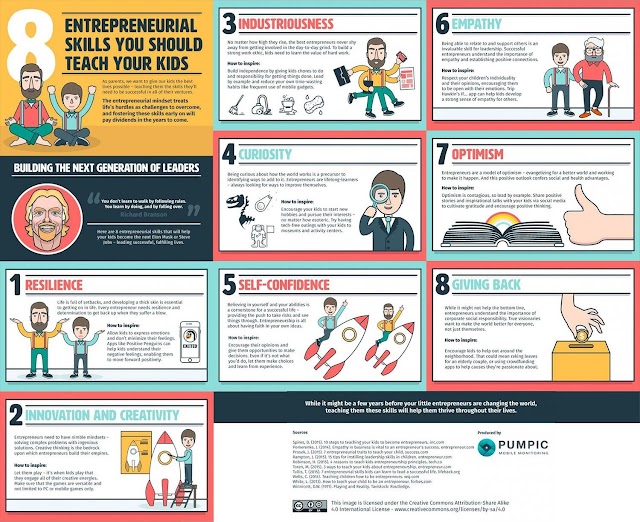 The reason is not laziness or unwillingness to learn, as their parents often believe. Lifehacker has prepared an article that explains what it's all about and gives some useful tips for solving this, without irony, complex problem.
The reason is not laziness or unwillingness to learn, as their parents often believe. Lifehacker has prepared an article that explains what it's all about and gives some useful tips for solving this, without irony, complex problem.
Share
0For parents, the approach of the new school year is a complete fever and running around in search of uniforms, textbooks and other necessary things. In fact, the main thing a child needs is emotional support. Whether your child returns to school after the holidays or goes to school for the first time, upcoming events can cause him understandable anxiety. Most children look forward to September 1st, but some suffer from severe emotional distress. It's called separation anxiety.
“It's normal for some kids to have trouble on their first day of school – it's still a new experience, but if it lasts for a few days, something needs to be done,” explains pediatrician Annette Mont. “Children are naturally curious, and when they get into a new situation, they tend to explore it.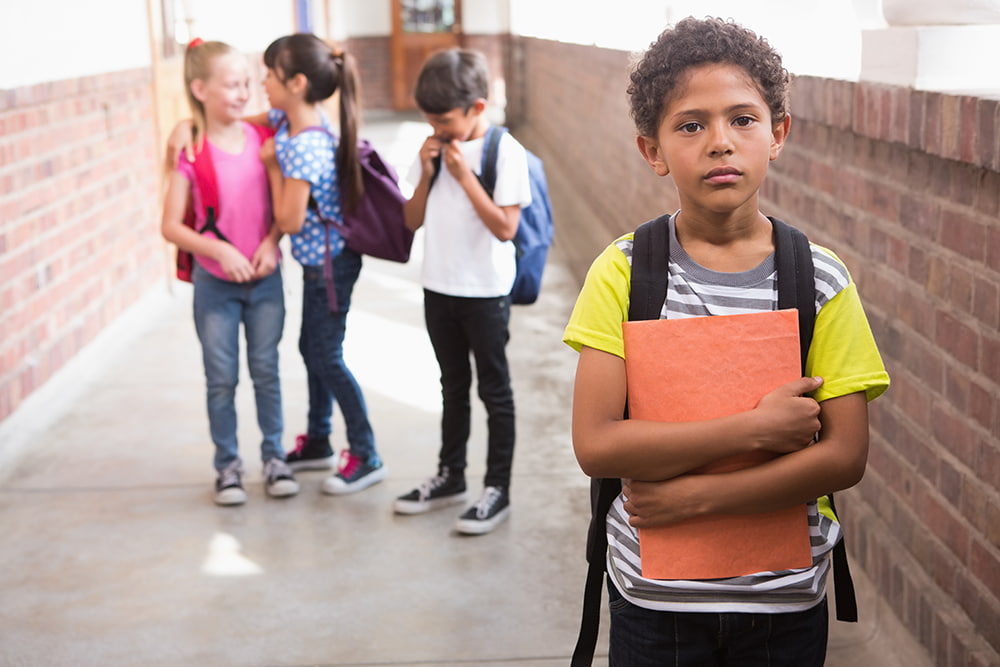 A child who clings to his mother definitely has a problem, and often it's the parents."
A child who clings to his mother definitely has a problem, and often it's the parents."
Too much love
If the prospect of going to school makes your baby cry and hysterical, if he looks sad or even sick, the fear of separation is to blame, and it is in you that the root of the problem may be, as well as the key to its solution.
Separation anxiety is defined as an unhealthy debilitating attachment between a parent and a child, which deprives the latter of the ability to act independently in the absence of a father or mother. This also works in reverse: the parent also suffers from the depressing impossibility of parting with their child.
Montessori Principal Sheila Linville has seen separation anxiety on many occasions and remembers a time when her mother was both the source and the solution.
“Every morning I saw the kids coming to school,” says Linville. - Among them was three-year-old Jessica, each farewell to her mother ended in tears. It all started with the mother: she cried, and after her the baby began to whimper. A few days later, I asked Jessica why she was crying. She replied, “Miss Linville, I am doing this because my mother is crying. So it’s supposed that mothers and children cry when they go to school. I explained to my mother that Jessica was trying to live up to her expectations in this way. It was difficult for the woman to accept this fact, but in the end she realized that she had unwittingly forced the child to behave in this way. The next morning, everything was completely different: a happy mother waved her hand to her daughter, and she ran to her classmates with a smile. And no more handkerchiefs!”
It all started with the mother: she cried, and after her the baby began to whimper. A few days later, I asked Jessica why she was crying. She replied, “Miss Linville, I am doing this because my mother is crying. So it’s supposed that mothers and children cry when they go to school. I explained to my mother that Jessica was trying to live up to her expectations in this way. It was difficult for the woman to accept this fact, but in the end she realized that she had unwittingly forced the child to behave in this way. The next morning, everything was completely different: a happy mother waved her hand to her daughter, and she ran to her classmates with a smile. And no more handkerchiefs!”
Parents are often surprised that the fear of separation can overtake at any moment of the school year, even if everything started off rather smoothly. Often this is the result of a break in the usual course of affairs, for example, after vacations and holidays, or when the child was sick for several days and sat at home surrounded by mother's care.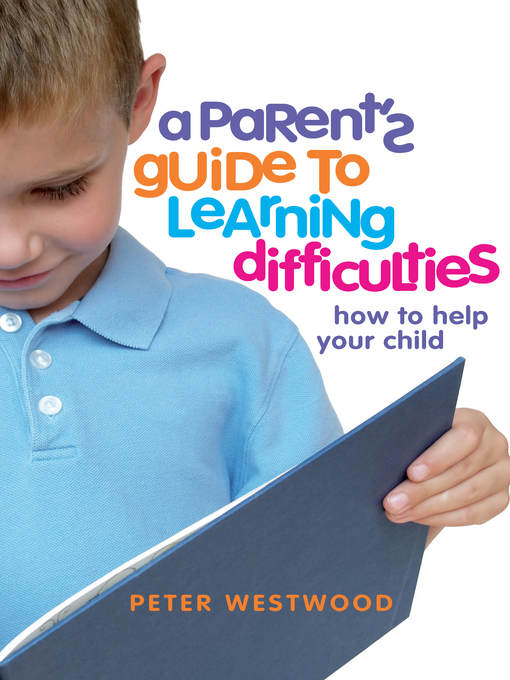 Some children experience these experiences at the end of the school year because they are sad that they will not see their friends for a long time.
Some children experience these experiences at the end of the school year because they are sad that they will not see their friends for a long time.
Annette Mont, over the years of practice, found out that parents unwittingly contribute to the fear of separation, considering the child an extension of themselves.
There are parents who are great at everything until the child is out of infancy, because at that time he is very dependent on them. When the baby begins to independently explore the world, fathers and mothers experience serious difficulties in order to admit: their child no longer belongs to them.
Get Ready
The start of the school year is an emotional experience that requires more thoughtful thought than just scheduling travel from home to school and back. Don't wait until the evening of August 31st to help your child get used to it or to address their concerns. Preparing for school is a long process that requires attention and energy. Mont advises parents to teach their children to separate pastimes through role-playing games: “First leave the child alone for half an hour, then for an hour, and so on. If he knows that his mother will definitely come for him, everything will be all right.” To find out what your child thinks about going to school, Monta again offers a role-playing game.
If he knows that his mother will definitely come for him, everything will be all right.” To find out what your child thinks about going to school, Monta again offers a role-playing game.
Act as a teacher and ask your child what they think is going to happen at school. Then switch roles and let your child take the lead of the teacher. So you can find out his thoughts and correct possible errors.
Ask your child to draw the school day the way they imagine it. Play school - with homework, textbooks and everything you need.
Children in their behavior are often guided by the emotions of their parents, so it is important for you to demonstrate in every possible way the joy of the upcoming trip to school. A nervous parent unconsciously conveys his feelings to the child, thus coloring everything connected with the coming changes in negative tones. “The best advice I can give to families is to get your child ready for school with enthusiasm. Even if the upcoming event makes you worry, assure your baby that he will love everything, and new friends will fully share his feelings, explains Linville. “Reassure your child that there is nothing wrong with being separated from you.”
“Reassure your child that there is nothing wrong with being separated from you.”
Getting to know the school
A trial day will help to introduce the child to the place where he will spend many years, ease his worries and captivate with the idea of studying. Visit the classroom, meet the teachers and learn their names, find out where the restrooms and the canteen are.
Establishing a relationship with the teacher helps the child to understand that at school he has a person to rely on. For parents, such an acquaintance helps to get rid of a fair share of experiences. If they like the teacher, these positive feelings are often reflected in the student-teacher relationship.
Arrange a children's holiday together with the parents of your future classmates, go with your son or daughter to get a school uniform and all the necessary little things, in a word, turn the beginning of the school year into a real event. Reassure your child that he will be fine without you, and that school is fun.
If on the first day of school the kid is still worried and does not want to part with you, Annette Mont advises giving him a family photo or something with your scent, and putting a note with warm words in the lunch box. The child will feel that you are near, and this will calm him down.
At parting, smile and encourage your first grader. No need to arrange a long send-off: he feels your nervousness and, even if he calmed down, he may start to cry. Despite all your love, it is worth showing firmness in this matter.
If your child finds it difficult to part with you, say that you love him, but leave as soon as the teacher takes him to class.
A positive start to the day also plays an important role in shaping the right attitude towards learning. It is necessary to establish a routine that will not turn into a source of stress for either the parents or the child. “Let calm music play in the car on the way to school, turn off your phone and completely focus on the child,” advises Sheila Linville.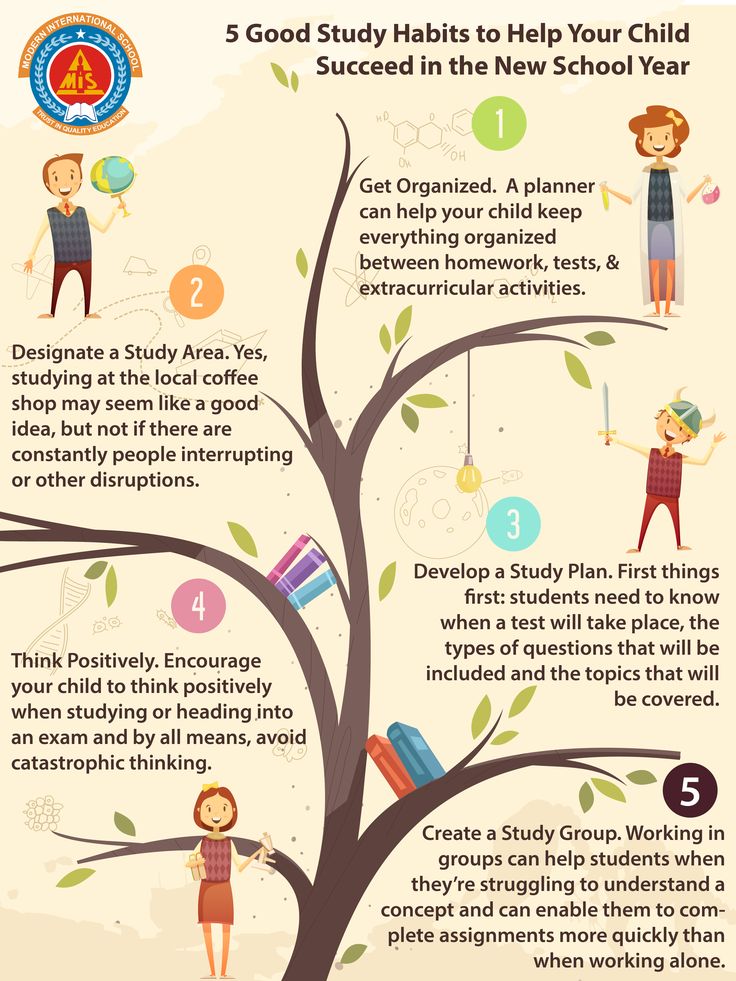
If your child doesn't like school or has trouble being away from you, don't overreact. Reassure him that he will do well at school. Do not put pressure on him, forcing him to make friends with classmates as soon as possible, but rather ask what was interesting today.
Never cry when seeing a child off. Even if he is looking forward to a new school day, your reaction will turn it into a negative experience.
The teacher has a significant influence on the ease of transition to school life. Teachers can create a warm and friendly environment for children through dating games, singing together, or reading stories about the school. Games help build friendships and a sense of belonging to a team. Regardless of whether the child goes to kindergarten or primary school, on the first day of school, great attention must be paid to the importance of developing the child's personality in the circle of classmates.
Raising without fear
One of the topical problems of upbringing is maintaining a balance between child protection and overprotection.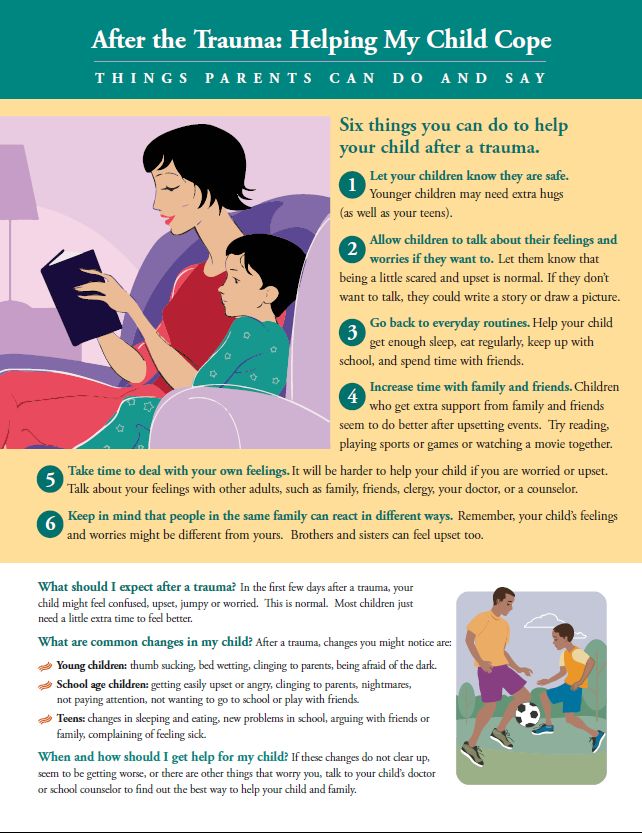 Of course, it's hard to ignore the kidnapping headlines, but parents who pay too much attention to it are broadcasting their concern to their children. Moms and dads sometimes behave in such a way that the child gets the impression that only next to them can he be safe. Reasonable upbringing is care without forming the child's confidence that without you he will certainly get into some dangerous situation. For example, if you are worried that your child is going to spend the night away from home, suggest that he invite friends over for a sleepover, rather than constantly repeating that you will not be able to sleep from worry.
Of course, it's hard to ignore the kidnapping headlines, but parents who pay too much attention to it are broadcasting their concern to their children. Moms and dads sometimes behave in such a way that the child gets the impression that only next to them can he be safe. Reasonable upbringing is care without forming the child's confidence that without you he will certainly get into some dangerous situation. For example, if you are worried that your child is going to spend the night away from home, suggest that he invite friends over for a sleepover, rather than constantly repeating that you will not be able to sleep from worry.
The constant transmission of fear ultimately has a bad effect on the development of children. The child may suffer from depression or various kinds of phobias, classmates may tease him with a crybaby or a sissy.
It is important to provide all conditions for the child to develop with a sense of independence and self-sufficiency. Give him more room to make decisions.
Parents who do not do this are telling their children that they are not capable of anything.
For yesterday's kindergartners, the first day at school is a reason for pride, because now they have become quite big. Older students are just happy to meet old friends. Excitement these days is a normal, in general, state. If you make sure that the child understands the need to attend school, talk with him about his feelings and experiences and introduce him to new teachers and classmates, all worries will soon disappear.
Memo for parents of first graders
Do not:
- Keep the child excited.
- Talk to the teacher about how the child is feeling.
- To insist that it's time to make friends.
- Obsess over negative feelings and inadequately respond to them.
- Cry, seeing off the child.
- Stand under the classroom window for a long time.
You can:
- Smile and cheer your child on the way to school.
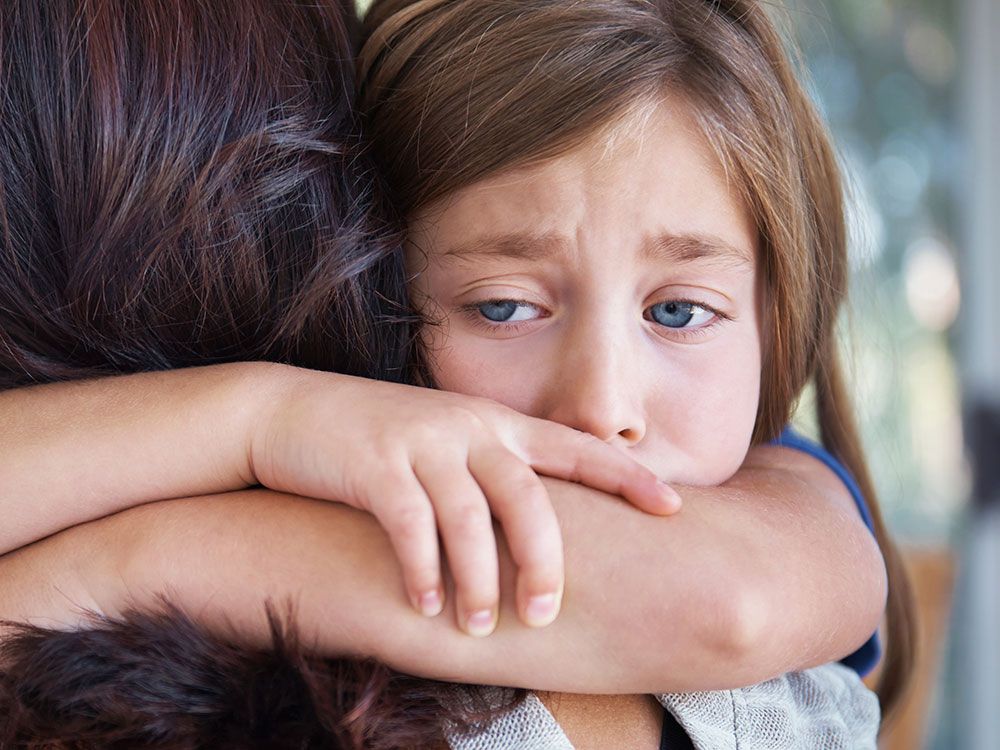
- Leave if the teacher calls the children to class.
- Put love notes in the lunch box.
- Encourage play with classmates.
- Establish a calm and joyful daily routine.
School preparation elements:
- Role play.
- Reading books about school.
- Trial day and introduction to the teacher.
- Shopping for school supplies together.
- Holiday for classmates.
- Raising independence in a child.
what if the child does not want to go to school?
The most difficult relationship with learning is formed among first-graders. And the point here is not the subjects themselves and bad grades - after all, in elementary school, diligent students are awarded with stickers, and deuces are not put in diaries, sparing the child's psyche. Social adaptation is what 40% of babies stumble over in the first months of training.
“Hyperactive and sociable children easily step into a new stage of life,” explains Antonina Bespalova, a child and family psychologist from Krasnodar. “But the shy and quiet sometimes have a hard time. If from the first days of study the child fails to join the team, he begins to feel uncomfortable in a new environment and wants to go home faster, where everything is so familiar and calm. This happens especially often with children who did not attend kindergarten or were simply protected by their parents from all sorts of difficulties. It turns out a vicious circle: the child does not find a common language with peers, teachers (simply because he does not know how!) And becomes even more isolated in himself.
“But the shy and quiet sometimes have a hard time. If from the first days of study the child fails to join the team, he begins to feel uncomfortable in a new environment and wants to go home faster, where everything is so familiar and calm. This happens especially often with children who did not attend kindergarten or were simply protected by their parents from all sorts of difficulties. It turns out a vicious circle: the child does not find a common language with peers, teachers (simply because he does not know how!) And becomes even more isolated in himself.
Many people are not able to explain what is the matter and why they cry in the morning. But their temperature can seriously rise - this is a kind of protective reaction of the body to severe anxiety.
“We need to help the child become more independent,” says Antonina Bespalova. - To do this, from time to time give him simple instructions: for example, buy bread in the store, pay for public transport yourself, help your grandmother carry the package (do not overdo it - the bag should be light!). The adaptation period usually lasts from a month to six months. This is a normal period for which the level of anxiety in younger students decreases.
The adaptation period usually lasts from a month to six months. This is a normal period for which the level of anxiety in younger students decreases.
Hooligans should get what they deserve
But the situation when a schoolboy, who attended school with pleasure for the first year or two, suddenly in the new academic year began to go to school like hard labor, is alarming. At this age, the baby develops precisely through schooling. And if suddenly he ceases to realize himself as a person, to strive for high achievements, most likely, something is wrong in his environment.
— There are many reasons: conflicts with classmates, teachers, possibly bullying — school bullying, — says Ilona Kharitonchik, a social teacher at an elementary school and a mathematics teacher. Bullying is a serious problem. Such a situation cannot be left to chance. The position “let him figure it out himself, we used to hit him in the nose for name-calling” is fundamentally wrong. Not every child is able to fight back, especially if the crowd attacks one. Parents must intervene.
Parents must intervene.
The first thing mom and dad should do is try to resolve the situation peacefully: talk to the class teacher, the school psychologist, and the parents of little "animals" who poison other children. Forget about the existence of such phrases as "kids don't like snitches", "strengthen your character", "yes, your child provoked himself." The latter is especially loved by the parents of the instigators, who do not want to accept the fact that their child is not a saint, but very pugnacious and quarrelsome.
- In my experience, and I have been working at a school for 15 years, not a single bullying will end by itself, - says Ilona Kharitonchik. - Only adults can resolve the conflict. If the school management - class teacher, head teacher for educational work and even the director - do not want to meet you halfway (and this, alas, occurs), your next step is the Department of Education. Usually this is enough, but sometimes parents have to connect the guardianship service and the prosecutor's office. This happens when situations do not move for a long time, and hooligans feel permissiveness so much that they decide on fights, thefts and beatings. There is, of course, an option to transfer a son or daughter to another school, but this way you can run around schools ad infinitum - in any class there will definitely be a child who is able to turn the class against the weakest. And of course, in such situations, I recommend that parents enroll their child in boxing or martial arts. As a rule, when bullies hit back, they suddenly lose interest in bullying.
This happens when situations do not move for a long time, and hooligans feel permissiveness so much that they decide on fights, thefts and beatings. There is, of course, an option to transfer a son or daughter to another school, but this way you can run around schools ad infinitum - in any class there will definitely be a child who is able to turn the class against the weakest. And of course, in such situations, I recommend that parents enroll their child in boxing or martial arts. As a rule, when bullies hit back, they suddenly lose interest in bullying.
Rebooting the brain and body
“Talented in everything: goes to fine arts and beadwork, simultaneously studies two languages, fencing, plays the guitar, and also rides horses…” No, this is not an excerpt from a book about a successful millionaire genius, but just a portrait of a modern schoolboy.
“For some reason, parents of the 21st century believe that their child must be able to do absolutely everything,” says psychologist Antonina Bespalova.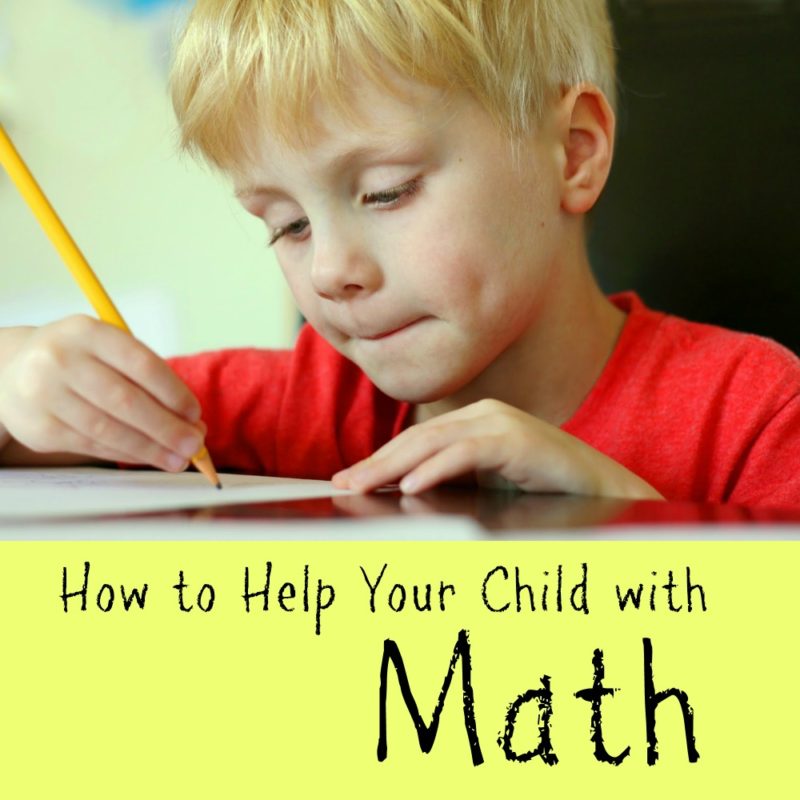 - Despite the fact that they themselves return from work so tired that even to play with a child they have to make incredible efforts on themselves. What a gym and drawing! But children are loaded to the fullest. Some sit down for homework only at midnight, and fall asleep at the table. And in the morning everything is new. Often even weekends are fully booked.
- Despite the fact that they themselves return from work so tired that even to play with a child they have to make incredible efforts on themselves. What a gym and drawing! But children are loaded to the fullest. Some sit down for homework only at midnight, and fall asleep at the table. And in the morning everything is new. Often even weekends are fully booked.
Lack of sleep reduces concentration. The child does not want to get up in the morning simply because he did not get enough sleep. He does not want to again do things that are not interesting to him all day long: with such a busy schedule, the desire to go even to the circle where he used to run with pleasure fights off. Sooner or later, the patience of "overloaded" children comes to an end. They begin to do everything anyhow: studies go awry, and section teachers wonder why such a gifted kid has become apathetic to everything.
— Conclusion: no need to try to master everything at once, the psychologist advises. - Moms and dads, your baby is not a superman. He can't do everything and not get tired. Let your child choose one or two circles. Don't like anything? Don't worry, let him rest. After a while, start offering him other activities, and through trial and error, one day you will be able to find your favorite. And remember, dear parents: childhood will fly by quickly. Let the child be a child. And he still has time to become an adult.
He can't do everything and not get tired. Let your child choose one or two circles. Don't like anything? Don't worry, let him rest. After a while, start offering him other activities, and through trial and error, one day you will be able to find your favorite. And remember, dear parents: childhood will fly by quickly. Let the child be a child. And he still has time to become an adult.
Signs that your child is bullied at school:
• the child does not want to talk about classmates and dodges questions in every possible way;
• is in a gloomy, depressed mood;
• you notice damage to your clothes and school supplies;
• minor injuries: abrasions, bruises.
How to win a child's trust?
1. A student is not always able to describe what he feels and defend his point of view in front of teachers and parents. Your job is to hear it. Never become a "prosecutor" in relation to your son or daughter.
2. The threat of punishment is the worst motive you can think of to study.